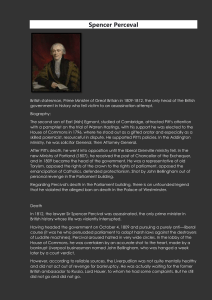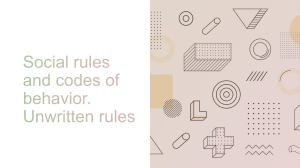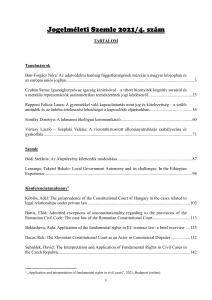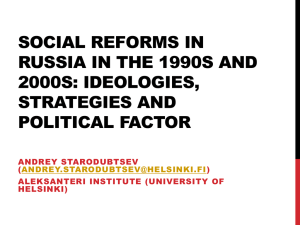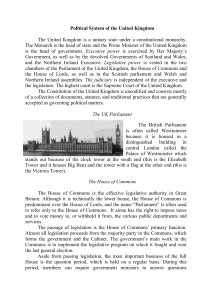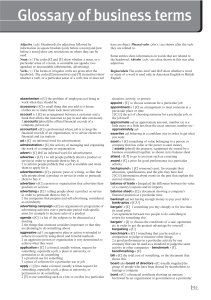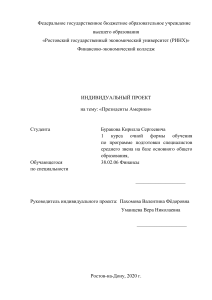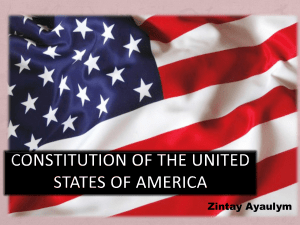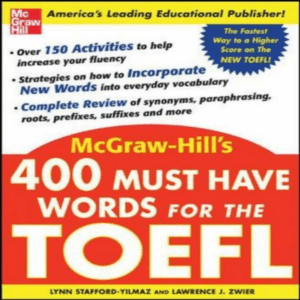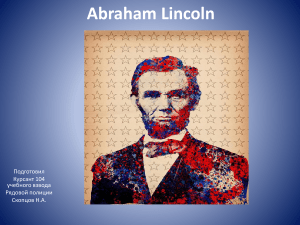Английский язык для студентов гуманитарных специальностей КАЗАНСКИЙ (ПРИВОЛЖСКИЙ) ФЕДЕРАЛЬНЫЙ УНИВЕРСИТЕТ
реклама
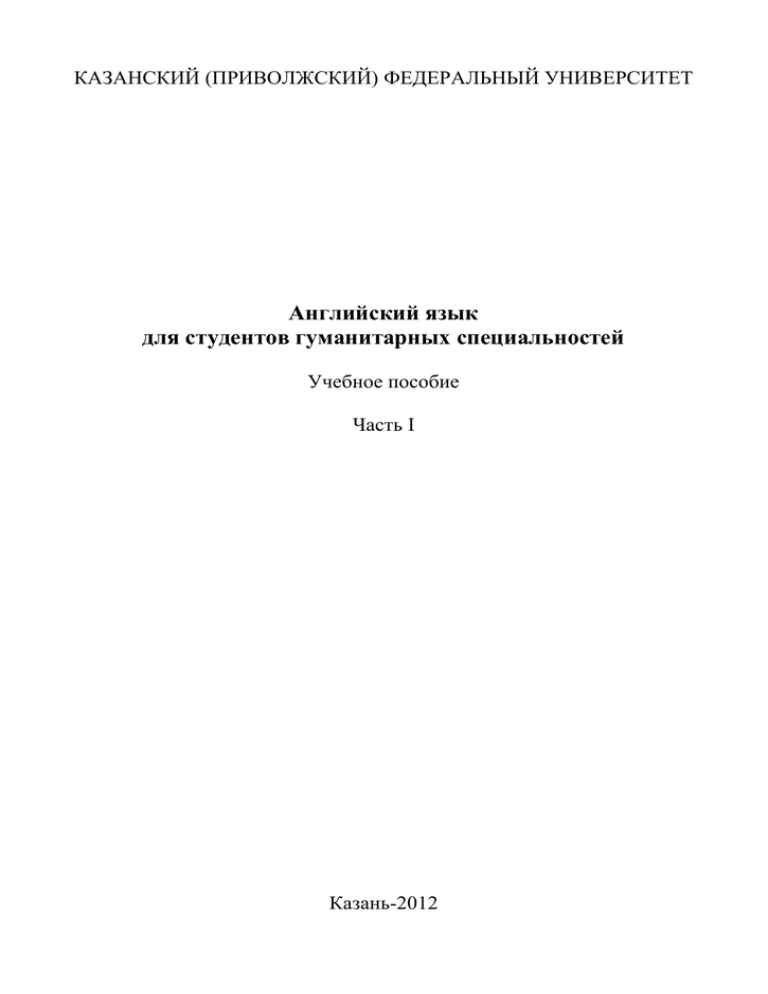
КАЗАНСКИЙ (ПРИВОЛЖСКИЙ) ФЕДЕРАЛЬНЫЙ УНИВЕРСИТЕТ Английский язык для студентов гуманитарных специальностей Учебное пособие Часть I Казань-2012 УДК 811.111.(075.8) Печатается по решению Редакционно-издательского совета ФГАОУВПО «Казанский (Приволжский) федеральный университет» Ученогосовета Института языка КФУ протокол №2 от 26 ктября 2011 г. кафедры английского языка Института языка КФУ протокол №3 от 19 октября 2011г. Авторы-составители ст. преп. Е.Н.Загладина, ст. преп. Н.В. Торопова Научный редактор д. филол. наук, проф. Г.А. Багаутдинова Рецензенты канд. пед. наук доцент, зав. каф. английского языка КГМИ О.Ю Макарова канд. пед. наук доцент Института языка КФУ И.З.Шапхнина Английский язык для студентов гуманитарных специальностей (в двух частях): Учебное пособие / Е.Н.Загладина, ст. преп. Н.В. Торопова – Казань: Казанский университет, 2012. – 64 с. Данное учебгое пособие разработано для студентов философского факультета и содержит аутентичные тексты из зарубежных и отечественных книг, пособий и электронных источников по профильным дисциплинам, преподаваемым на всех отделениях философского факультета Казанского университета: философия, политология, религиоведение, конфликтология и культурология. Тексты пособия включают в себя социально - политические аспекты развития человеческого общества с точки зрения их истории и современного состояния. Материалы пособия прошли апробацию в студенческих группах и могут быть использованы как для аудиторной, так и для самостоятельной работы студентов. © Казанский университет, 2012 2 Приветствие Данное пособие предназначено для студентов гуманитарных специальностей. Цель пособия – углубление и расширение языковых и лингвистических знаний студентов, расширение диапазона понимания английского текста, обогащение активного словарного запаса, совершенствование устной и письменной речи. Каждый урок содержит тематический словарь, упражнения на его активизацию, тематический текст для аналитического чтения и упражнения для развития навыков устной и письменной речи. Весь текстовой материал взят из оригинальных источников. Каждый текст снабжен упражнениями коммуникативной направленности: ответы и вопросы в парной работе, упражнения на самостоятельное построение вопросов, вопросы для общего обсуждения. Для дальнейшего развития навыков письменной речи и закреплени6 лексики уроки содержат упражнения на написание короткого высказывания, реферирования статьи и написание сочинения. Предполагаются темы для неподготовленных выступлений, материал для учебной дискуссии. В грамматическом приложении даются дополнительные упражнения на модальные глаголы. В заключении автор выражает благодарность д.фил.н., проф. Багаутдиновой Г.А. за ценные замечания и советы при составлении пособия. 3 Contents Unit 1 Government …………………………………………….. Unit 2 Public policy …………………………………………… Grammar Supplement …………………………………………… Modal verbs (revision) Modal verbs of Deduction …………………………………………… 4 Part I Unit 1Government. Governmental structures The topical vocabulary to be remembered управлять, руководить, управление, руководство правительство to conduct / to exercise осуществлять руководство government governor n. / ruler правитель, губернатор governmental adj. управленческий, правительственный 1. to govern v. / to rule government n. 2. power n. / authority to gain / obtain power to exercise power to hold power powers pi. / authorities to confer powers (on) powerful adj. powerless adj. 3. to legislate v. 1) мощь, сила; 2) власть; 3) энергия захватить/ получить власть осуществлять власть удерживать власть полномочия наделять полномочиями мощный, властный бессильный, беспомощный заниматься законодательством издавать законы legislature n. законодательная власть, учреждение legislation n. законодательство, законодательный процесс legislative adj. legislator n. 4. to execute v. executive n., adj. законодательный законодатель 1) исполнять; 2) казнить исполнительная власть/ орган; исполнительный 5 execution n executor n 5. to judge v. judge n judiciary n judicial adj. judgement n. 6. to oppose (sth) v. opposition n. opponent n. / challenger opposite (of / to) adv., adj. 7. to subject (to / for) v. to be subjected (to) subject n. 1) исполнение; 2) казнь 1) исполнитель; 2) палач судить, выносить решение, оценивать судья судебная власть судебный мнение, взгляд, судебное решение, оценка противодействовать, выступать против противодействие, оппозиция противник, оппонент напротив, противоположный Подвергать, подчинять subjective(ly) adj., adv. Подвергаться, подчиняться 1) тема, предмет; 2) подданный, субъект; 3) подлежащее подлежащий, подвластный, подчиненный подлежать подчиненный (но), subjection n. субъективный (но) подчинение subject (to) adj to be subject (to) 8. to accord v (significance, welcome, etc.) 1) согласовывать соответствовать 2) придавать (важность), оказывать гостеприимство, предоставлять 6 accord n. / harmony согласие, соответствие accordance n. ant. discord n. of one's own accord аccording (to) accordingly adv. соответствие разногласие, несоответствие по собственной инициативе согласно, соответственно соответственно, таким образом 9. to succeed v. (sb) / to inherit to succeed (in) sth / doing syn. to distinguish oneself / to be a success succession n. successor n. / follower / heir (to, of) successor state successor adj. success n. / successful adj. 10. to accede v. (to an alliance, a union, a post) 1) наследовать, сменять 2) отличиться, преуспеть наследие (право) преемственность, последовательность преемник, наследник государство-правопреемник последующий, последовательный успех, успешный 1. вступать, присоединение 2. соглашаться добавочный, syn. to join accession n. вступление, присоединение accessory adj. добавочный Вспомогательный to access (sth) v access n. accessible adj. 11. to adopt v. (a law) Иметь доступ к Доступ доступный 1) принять, занять позицию 7 to adopt an attitude adoption n. Do not confuse with to adapt v. syn. to adjust v. adaptation n. adjustment n. 2) усыновлять принятие, усыновление приспосабливать(ся) переделывать, урегулировать, настаивать приспособление, изменение урегулирование, настройка 12. to suggest v. / to propose suggestion n. / proposal syn. proposition 1. предполагать; 2. предлагать 13. to alter v. = to change partially alteration n. (видо) изменять 14. to constitute / to compose v. syn. to establish сonstituted authorities constitution n. 1) составлять syn. structure, organization constitutional(ly) adj constituent adj constituency n. 1. предложение 2. предположение (видо) изменение 2) основывать, учреждать; законные власти 1. конституция, основной закон устройство, состав; 2. телосложение; склад (ума) конституционный (но) составляющий избиратель избирательный округ 8 Exercise 1 Study the use of the topical vocabulary, translate the sentences into Russian. govern, government (al), governor 1. Britain is governed by Her Majesty's Government. 2. Monarchy is the most common form of government. 3. Prime minister and his Cabinet constitute the British govern-ment. 4. The study of governmental structures must proceed hand in hand with the investigation of real political processes. 5. The Queen is the supreme governor of the Church of England. power, powers, powerful / powerless 1. As a result of a long process of evolution the monarchy's absolute power has been progressively reduced. 2. For years a trend has been to confer powers directly on ministers. 3. Dictators use force to gain despotic political power. 4. The Speaker possesses wide powers in the House of Commons. 5. G 7 is a group of most powerful countries in the world. 6. The U.S.A and Russia are the greatest nuclear powers. 7. The supreme power in Britain is exercised by president. 8. Nuclear power is to be used for peaceful purposes. 9. To provide energy to consumers power plants have to be built. 10. The UN was powerless to prevent the invasion. legislate, legislature, legislation, legislative 1. Legislation requires agreement of all three elements of power. 2. Parliament may legislate as it pleases, subject to Britain's obligations as a member of the European Union. 3. During debates Government's legislative proposals are criticized. 4. In law the Queen is head of executive and an integral part of legislature. 5. The overall legislative record of the administration was inadequate. execute, execution, executive 1. Ministers execute laws and are responsible to parliament. 2. England was the first country to have executed her king. 3. Execution of laws is conferred on governmental executive bodies. 4. The executive powers of the Crown are exercised by the Cabinet. 9 5. The industry lacks highly professional executives. judge, judgement, judiciary, judicial 1. One can't judge by appearances. 2. In Britain judges are normally appointed from practicing lawyers. 3. The Lord Chancellor heads the judiciary in England and Wales. 4. All the House of Lords legal judgements are published on the Internet www. parliament. uk/ 5. The Lord Chancellor recommends all judicial appointments to the Crown, except the highest. 6. The loss of power arose from political misjudgement. subject, be subjected to, subjection, subjective (ly) l. The governing elites are often not subjected to effective restraints on the exercise of their power. 2. State organs subject each other to reciprocal controls. 3. The committee subjected its decision for the parliament's consideration. 4. Every subject starts off as a proposal or 'motion' by an MP. 5. All British subjects over the age of 18 may vote provided they are not subject to any disqualification. 6. In any legal system a complete subjection of lower courts to higher courts is implied. 7. The decision taken subjectively is subject to reconsideration. accord, accordance, according (ly) 1. 2. 3. 4. 5. A hearty welcome was accorded to the delegation. It was important to find accord among the members of the team. According to some sources the results of the election were rigged. All the UN resolutions are to be in accord with the UN Charter. There were some remarks to the report, and the final document was changed accordingly. 6. Members of British Parliament act in accordance with precedent. 7. It is important not to be in discord with your self. succeed, (un)success(ful), successive, succession, successor 1. In Britain traditionally it is the elder son of the monarch who succeeds to the throne. 2. In succeeding years the queen gained more and more powers. 10 3. Nowadays we are ready to forget that Western Europe made two unsuccessful attempts to expand before she eventually succeeded. 4. Governments can be changed by elections, through dynastic succession, as a result of coup d’etat and so on. 5. Mrs Thatcher said: «No other nation has so successfully comb: people of different races and nations within a single culture)). 6. Two successive attempts to overcome the barrier failed. 7. Middle-class voters who had supported Grey in 1832 lost cc dence in Melbourne, his successor. accede, accession, accessory, access, accessible 1. Many thought all the countries of the world would eventually accede to the examples of the United States or Great Britain and astablish similar arrangements. 2. Accession of a number of Eastern European countries to European Union may weaken the latter. 3. After her accession to the throne Elizabeth accepted Philip's alliance hand. 4. One must accede to the judgement made by the commission. 5. Besides the powers conferred on the president he also acquires some accessory ones, not unimportant, which go with the post. 6. Terrorists can easily access all means of communication, cyber space becoming accessible as well. constitute, constitution, constitutional, constituent, constituent 1. Such behaviour has long been considered the prerogative of properly constituted governments. 2. Prime minister and his Cabinet constitute the British government. 3. On February 7, the seven states adopted a provisional constitution for the Confederate States of America. 4. The majority of delegates agreed on a series of constitutional amendments to limit Republican influence. 5. The first 10 amendments to the American constitution constitute the Bill of Rights. 6. The constituent parts of the power mechanism are as follows. 7. This agency subsidizes two very influential constituencies. 8. Constitutionally secular, but mostly Hindu, India has the world’s second largest population of Moslems. 11 Exercise 2 Fill in the spaces with the right word. govern, (un) governable, government, governor, governmental 1. 2. 3. 4. 5. The organs of ____ overlap but can be clearly distinguished. In the definition of a _____ structure the main question is ‘who _____’? In the federal structure of the U.S. each state is _____ by a _____. Both in Britain and the U.S.A the winning party becomes a _____ party. New _____ agencies brought generous credit facilities to industry and agriculture. 6. In this respect the society was becoming _____. 7. The only law which could ______ the relations of sovereign states with each other was the law of the jungle. 8. The Spanish colonies were _____ from Spain by the Council of the Indies. The ______ appointed by the council were landowners who had almost absolute authority. power, powers, powerful / powerless 1. In a monarchy a monarch exercises the supreme _____ of government. 2. Only about a dozen nations have systems where only two parties compete for _____. 3. The Green parties protest against new nuclear _____ plants. 4. Legislative _____ in Britain are vested in Parliament. 5. The House of Lords is _____ to decline a bill, it can only delay it for some time. 6. North Korea seeks to become one of the _____ possessing nuclear weapons. 7. Britain used to be the most _____ nation in the 19th century. 8. The European _____ had completed their overseas expansion, and now were threatened by the rising ___ of Germany. subject, be subjected, be subject, subjection, subjective 1. 2. 3. 4. The parliament _____ the new taxation bill to revision. The new programme is certain _____ to sharp criticism. The schedule is not final, it _____ to change. Those critical remarks couldn't be taken into consideration, they were too ____. 5. The of lower instances to the higher bodies is to be taken for granted. 12 6. The main _____ for discussion at the opening session is to be the pension reform. 7. In the conflict over Poland Moscow demanded a government _____ to Soviet influence. 8. As the American colonists were English _____ as well, the Bill applied to them too. 9. Parliament may legislate as it pleases, ______ to Britain's obligations as a member of the European Union. accord, according, accordance, according (ly) 1. 2. 3. 4. The Security Council took decision in ______ with the Charter. _____ to the protocol the head of the country is ______ a due respect. Your mind and soul should be in _____ with your body. The head of the delegation was replaced by a junior minister and the protocol of the welcome procedure was changed _____. 5. _____ to the American view Truman lectured Molotov about the need to carry out the Yalta ____. 6. There is to be an _____ among all elements of power for legislation. legislate, legislation, legislature, legislator, legislative 1. For all of the _____ activity in the U.S., some blacks became impatient with the pace of progress. 2. In 1968 the Congress passed _____ banning discrimination in housing. 3. In the 1930s the White House had initiated _____ and worked closely with Congress to ease the trauma of the Great Depression. 4. Truman faced fierce political opposition from conservative _____. 5. The Crown dependencies have local _____ which make laws on island affairs. 6. Eisenhower's inclination to play a modest role in public often led to_ stalemate. judge, judgement, judiciary, judicial 1. Truman's _____ how to respond to the Soviet Union had an important impact on the early Cold War. 2. The presidential election of 1900 gave the American people a chance to pass _____ on the administration. 3. The House of Lords consists also of life peers created to assist the House in its _____ duties. 13 4. Payments were withdrawn from anyone who was _____ not to be genuinely seeking work. 5. The ______ determines common law and interprets statutes. 6. The jury ______ that the defendant was not guilty. 7. are normally appointed from practicing lawyers and are not subject to ministerial direction. 8. The _____ is to hear all cases arising under federal laws and the Constitution. execute, execution, executive, executioner 1. The warrior and the ____ do similar jobs. 2. The public has always had to lurk in the shadows. 3. America, like all countries, which use death penalty, has ____ innocents. 4. Washington pledged _____ the duties of the presidency faithfully. 5. The bodies are responsible for the____ of laws. 6. The transport union ____ yesterday announced a stepping up of the campaign to defend fair fares. succeed, (un) success (fid), successive, succession, successor 1. More dynasties which continued to rule as well as to reign have paid with the loss of their thrones. 2. The ____ to Edward the Confessor was the Saxon Harold. 3. Anyone _____ to a peerage may, within 12 months of _____, disclaim (refuse from) that peerage for his or her life. 4. How have Americans _____ in avoiding ethnic troubles with the diversity of settlers. 5. The monarchy is hereditary, and provisions of the Act of Settlement of 1701 secured the Protestant _____. This _____ cannot now be altered. 6. Parliament acts in such a way as not to bind its _____ in the form of their legislation. 7. Mass entertainment tends to be similar in all the cultural media: westerns, detective stories, stories, situation comedies. 8. For three years in the production figures had been steadily on the climb. accede, accession, access, accessible 1. One must ____ to Bernard Shaw's words that «you may occupy towns and win battles, you cannot conquer a nation». 14 2. The Court is already overloaded with cases, and the number can only increase when new Member States ____. 3. In future, qualified majority will be obtained if a decision receives a specified number of votes. This restriction will be reviewed in the light of successive _____. 4. The restrictions proposed could result in foreign companies being denied _____ to the U.S. market. 5. In Hong Kong citizens have _____ to the Internet in a more powerful than 99 % users in the world while in the depressed areas the Internet seems _____. constitute, constitutional, constitution, constituent, constituency 1. 2. 3. 4. 5. 6. 7. Terrorism ____ a menace to all of us. His _____ of mind was of an extraordinary kind. A _____ order does not always guarantee democracy. The aim of the rebels was to overthrow the ____ authorities. A person can be slim or fat, which implies his ______. Decontrol alone does not ______ an adequate oil policy. For electoral purposes Britain is divided into 659 _____. Exercise 3 Before you read the text in exercise 4, discuss the following: 1. 2. 3. 4. 5. What do you understand by a governmental structure? What political systems do you know? Which political system appeals to you most? What governmental structures are there in Britain / the U.S.A. / Russia? Who are the heads of these countries and their governments? Exercise 4 Look through the text below and say which systems of government are mentioned. Do the tasks that follow. Systems of Government Governments can be classified in many ways. The most time-honored system comes from the ideas of the ancient Greek philosopher, Aristotle. It is based on a key-question: Who governs the state? Under this system of classification, all governments belong to one of the three major groups: autocracy — rule by one person; oligarchy or aristocracy— rule by a few persons; or democracy — rule by many persons. 15 Any system of government in which the power and authority to rule are in the hands of a single individual is an autocracy. This is the oldest and the most common form of government. Historically, most governors or autocrats maintain their positions of authority by inheritance like in monarchies or the ruthless use of military or police power like in totalitarian dictatorships or tyranny. In a monarchy a king or a queen or an emperor exercises the supreme powers of government. Absolute monarchs have complete and unlimited power to rule their people, but absolute monarchies are rare today. With various functioning mechanisms of government — cabinet, parliament, ministers, and parties having been established in many monarchies, the power of the monarch has been dramatically limited. An oligarchy or aristocracy is a system of government in which a small group holds power. The group derives its power from wealth, military power, social position, or a combination of these elements. Sometimes religion is a source of power. The term oligarchy is rarely used now to refer to contemporary political systems. Both dictatorships and oligarchies often claim they rule for the people. Such governments may try to give the appearance of control by people. They might hold elections, but offer only one candidate, or control the election results in other ways. Such governments may also have some type of legislature or national assembly elected by or representing the people. These legislatures, however, only approve policies and decisions already made by the leaders. As in a dictatorship, oligarchies usually suppress all political opposition. A democracy is any system of government in which rule is exercised by people. Democracy may take one of two basic forms: direct or representative, the former existing only in very small societies where decisions may be taken by general vote. In a representative democracy, the people elect representatives and confer on them the responsibility and powers to legislate and conduct government on their behalf. The ancient distinction between monarchies, oligarchies and democracies is no longer descriptive of political life. The notions and ideas concerned have been altered and the same types of governmental machinery often function very differently. Exercise 5 Look back into the text and answer the following questions: 1. 2. 3. What are the similarities and differences between the governmental systems? What mechanisms of government operate today? How is democracy defined and what are its forms? 16 4. 5. How does a direct democracy differ from a representative one? Why don't the above mentioned forms of government reflect any longer contemporary political life? Exercise 6 Look through the text again and point out which topical vocabulary appears in it. Exercise 7 Find in the text: a. derivatives of the word ‘govern’ and word. What is the meaning of the case? Is it the same? Which synonym in the text? b. the word-combinations with the word the word the same in all of them? word combinations with this word ‘government’ in each of the verb ‘govern’ is used ‘power’. Is the meaning of Exercise 8 Point out the sentences in which the following word-combinations occur and suggest the Russian for them. The most time-honored system of government power and authority to rule to maintain the position of authority by inheritance ruthless use of military power to exercise the supreme powers of government complete and unlimited power to rule people to give the appearance of control by people to suppress political opposition to confer responsibility to legislate to conduct government Exercise 9 Give equivalents from the text to the following: An important question; to work; to rule; to change partially; main; to carry out; to relate to; to make laws; to maintain / to state; to crush or hold back by power; to accept policies; a problem 17 Exercise 10 Match the English word-combinations related to government with their Russian equivalents. A. 1. local government 2. military government 3. Her Majesty's government 4. mixed government 5. presidential government 6. provisional government 7. arbitrary government 8. parliamentary government 9. authoritarian government 10. government of the day 11. interim government a. парламентское правление b. временное правительство c. президентская власть d. автократия e. смешная форма правления f. правительство Ее Величества g. местное самоуправление h. военная администрация i. авторитарная форма правления B. 1. government investigation 2. government offices 3. government official 4. government party 5. government's term of office 6. organs of government 7. government (al) regulation 8. government department 9. dissolution of government a. b. c. d. e. f. g. h. i. правительственное ведомство срок полномочий правительства правящая партия постановление правительства правительственное расследование роспуск правительства правительственный чиновник органы управления правительственные учреждения Exercise 11 Read the text that follows and give written answers to the questions below, try not to quote the text. 1. 2. 3. 4. 5. 6. What does constitutional government imply? How do various state organs cooperate in controlling political power? What do contemporary constitutional democracies have in common? Why are political parties referred to as key institutions? Why are Britain and the U.S.A. taken as examples of constitutional democracy in the modern world? How is the British constitution different from constitutions in other countries? 18 7. What are the legislative and executive branches of power referred to as in Britain and the U.S.A.? 8. What is the difference in the relationship between legislature and executive in Britain and the U.S.A.? 9. What proves that constitutional democracy carries no guarantee of stability? 10. What changes have the governmental systems in Britain and the U.S.A undergone in the last decades? 11. Why are governmental systems subjected to alterations even-without formal constitutional change? 12. What main problem do many constitutional governments face? Constitutional Government Constitutional government is defined by the existence of a constitution that effectively controls the exercise of political power. The control of power is distributed among several state organs or offices in such a way that they are each subjected to reciprocal controls and are forced to cooperate in formulating the will of the state. The contemporary political systems that combine constitutionalism and democracy accord primary significance to the will of the majority of peoples as expressed in free elections. And in such systems, political parties are key institutions, for they are the agencies through which majority opinion in a modern mass electorate is mobilized and expressed. The essential functions of political parties in a constitutional democracy are the integration of a multitude of interests, beliefs, and values into one or more programmes or proposals for change and the nomination of party members for elective office in the government. In both functions the party serves as a link between the rulers and the ruled. It is worth mentioning that few states in the modern world have constitutional arrangements that are more than a century old. Indeed, the vast majority of all the world's states have constitutions written in the 20th century. This is true of states such as Germany, Italy, and Japan that were defeated in World War II and of other states, such as the successor states of the Soviet Union, and China that have experienced civil war and revolutions in the course of the century. Actually Great Britain and the United States are almost alone among major contemporary nation-states in possessing constitutional arrangements that predate the 20th century. Britain is the classic example of the parliamentary system. The British constitution has evolved over many centuries. Unlike the constitutions of most other countries, it is not set out in any single document. Instead it is made up of statute law, common law and conventions, which are 19 derived from the historical events through which the British system of government has evolved. While the British Parliamentary system provides for the integration of legislature, that is Parliament (the Queen, the House of Commons and the House of Lords) and executive (Her Majesty's Government), the U.S. presidential system is based on the doctrine of separation of powers. Moreover the United States is the leading example of the presidential system of constitutional democracy, which, according to Woodrow Wilson, was «simply an adoption of English constitutional system of government)). The U.S. presidential system distinguishes sharply between the legislature, the latter being Congress with the Senate and the House of Representatives, and the executive, which is the President and his Cabinet. In fact the prestige of constitutional democracy was once so great that many thought all the countries of the world would eventually accede to the examples of the United States or Great Britain and establish similar arrangements. However the collapse of the Weimar Constitution in Germany in the 1930s and the recurrent political crises of the Fourth Republic in France after World War II suggested that constitutional democracy carries no guarantee of stability. The failure of both presidential and parliamentary systems to work as expected in less-advanced countries that modeled their constitutions on those of the United States and Britain resulted in a further diminution in the prestige of both systems. Functioning examples are located throughout the world, though these are generally poorly institutionalized outside of those countries with direct historical ties to Western Europe. Japan is a notable exception to this generalization, as are Costa Rica, India, and several other states to a lesser extent. Curious enough that even in Britain and the United States, the 20th century has seen much change in the constitutional government especially as far as the relationship of legislature and executive is concerned. In the United States, for example, the relationship of legislature and executive at both the national and the state levels has been significantly altered by the growth of bureaucracies and the extension of the executive's budgetary powers. In Britain, even far more reaching changes have occurred in the relationship between the prime minister and Parliament and in Parliament's role in supervising the executive establishment. Furthermore in both countries, the appearance of the welfare state, the impact of modern technology on the economy, and international crises have resulted in major alterations in the ways in which the institutions of government function and interact. The adoption of new constitutions is also a major aspect of political change in almost all of the states of Eastern Europe. All systems, moreover, even without formal constitutional change, undergo a continual process of 20 adjustment and mutation as their institutional arrangements respond to and reflect changes in the social order and the balance of political forces. The question for many constitutional regimes is whether the limitation and balance of power that are at the heart of constitutional government can survive the growing enlargement of executive power. (from Civilization on Trial by Toynbee) Notes to the text: 1. Welfare state — a state whose government is responsible for the wellbeing of its citizens through such measures as social security, free medical care, old-age pensions, and providing education, housing, and the like. — Государство социального благополучия. 2. Woodrow Wilson — the U.S. president at the end of the 19th century. 3. Weimar Constitution — the constitution adopted in Germany inl919 abolished monarchy and institutionalized general election, an elected head of government— president. It ceased to exist with the establishment of fascist dictatorship in 1933. 4. The Fourth Republic in France— was proclaimed in 1946 after the adoption of a democratic constitution. Exercise 12 Discuss the text making use of the questions preceding it. Work in pairs or with the class. Exercise 13 Explain the following in English: reciprocal control, mass electorate, successor states of the Soviet Union, statute law, common law, integration of powers, poorly institutionalized countries, process of adjustment and mutation. Exercise 14 Translate the sentences from the text into Russian. 1. The contemporary political systems accord primary significance to the will of the majority of the people as expressed in free elections. 2. Great Britain and the United States are almost alone among major contemporary nation-states in possessing constitutional arrangements that predate the 20th century. 21 3. The collapse of the Weimar Constitution in Germany in the 1930s and the recurrent political crises ... in France ... suggested that constitutional democracy carries no guarantee of stability. 4. The U.S. presidential system distinguishes sharply between the legislature, the latter being Congress with the Senate and the House of Representatives, and the executive, which is the President and his Cabinet. 5. In both countries, the appearance of the welfare state, the impact of modern technology on the economy, and international crises have resulted in major alterations in the ways in which the institutions of government function and interact. Exercise 15 Find in the text the English for the following Russian equivalents. подвергаться взаимному контролю современные политические системы сочетать демократию с конституционным правлением придавать первостепенное значение классический пример обеспечить взаимодействие между законодательной и исполнительной властями тогда как в меньшей степени прямые исторические связи расширение полномочий исполнительной власти изменения с далеко идущими последствиями откликаться на и отражать изменения в государственном устройстве Exercise 16 Suggest the Russian for the English word-combinations from the text To effectively control the exercise of power to cooperate in formulating the will of the state key institutions to mobilize mass electorate integration of a multitude of interests, beliefs and values the doctrine of separation of powers to provide for the integration of legislature and executive to result in a further diminution in the prestige poorly institutionalized countries at the national and state levels to alter significantly 22 to supervise the executive establishment to undergo a continual process of adjustment and mutation institutional arrangements Exercise 17 Match the equivalents with the vocabulary from the text 1. ensure 2. reduction, lessening 3. experience, go through 4. settlement 5. inspect, direct 6. develop gradually 7. use one's power 8. put to control 9. returning periodically 10. join in, agree 11. heir, follower 12. make a conclusion 13. admit 14. great influence, contribution 15. happen a. accede b. adopt c. evolve d. subject to control e. exercise power f. judge g. adjustment h. supervise i. impact j. guarantee k. occur l. diminution m. recurrent n. successor o. undergo Exercise 18 Fill in the spaces with the active vocabulary from the text. 1. 2. 3. 4. 5. 6. 7. 8. The existence of a constitution effectively controls the ____ of political power. State organs and offices must ____ to reciprocal controls. Majority opinion in a modern mass ______ is mobilized and expressed through political parties. The British system of _____ has _____ through historical events. The British constitution has _____ over many centuries. The British Parliamentary system________ for the integration of _____ and _____. According to Woodrow Wilson, the U.S. constitutional democracy was «simply an _____ of English constitutional system of _____». Many thought all the countries of the world would eventually the examples of the United States or Great Britain and _____similar_____. 23 9. In the United States the relationship of and ____ has been _____ by the growth of bureaucracies and the _____ of the executive’s budgetary _____. 10. he _____ of new _____ is also a major aspect of political change in almost all of the states of Eastern Europe. Exercise 19 Put the verbs in the brackets in the right derivative form. 1. Representative (legislate) bodies, freely (elect) under universal suffrage, became the key institutions of democratic (govern). 2. Nominally the (elect) gave him 253 supporters against 123 confirmed (oppose) members. 3. Some New England colonies (succeed) in becoming self (govern) just by affirming that they were beyond any (govern) authority. 4. For the first time British politicians supported the rights of the king’s (subject) abroad (govern) themselves. 5. Luther’s (succeed) thought him to be obviously right. 6. In Australia symbolic (execute) power is vested in the British monarch, who is represented by the (govern) general. 7. Australia is a federal state (govern) by a constitution (adopt) in 1900. 8. The UN inspectors operate in (accord) with the SC resolution. 9. (Govern) elites in many advanced industrial societies are often not (subject) to effective restraints on the exercise of power. 10. There seems to be a continual erosion of our (judge) system. It's another step towards (judge) by decree. 11. Before the war of 1812 the United States (accord) equality in the family of nations. 12. (accord) to the provisions of the Constitution, the (elect) was thrown into the House of Representatives. 13. In 1824 members of the Electoral College were still selected by six state (legislate). 14. In’ 1917 the U.S. Congress granted Puerto Ricans the right (elect) all of their (legislate). 15. Magistrates are (judge) officers, who are responsible for (judge) cases in lower cases. 16. The colonial (legislate) dominated colonial (govern). Exercise 20 Supply the active vocabulary for the Russian words in the brackets. 24 1. The Tudors (удалось обеспечить) (npeстолонаследие) to their dynasty and in preventing any Catholic (наследовать) трон. 2. All bills to be passed by Parliament are (подлежат) to three readings in each of the Houses. 3. Britain enjoyed a tripartite system of (правление) in which (власть) was shared between the King, the Lords and the Commons. 4. Eighteenth-century (государство) devoted very little time to (законодательству) or to domestic affairs generally. 5. In 1788 the Australian territory of New South Wales was officially (присоединение) to British Empire. 6. He carried on (управлять) as if nothing had happened. 7. This argument led parliament (к принятию) of the famous resolution. 8. The task proved to be beyond his (сил). 9. The new commercial treaty (делало) considerable (уступки) upon French wines in Britain. 10. (Воздействие) of industrialization on the living standards of working people has long been a controversial (темой). 11. Seen in the long term, Britain's record seems much more (успешной) in international finance and trade than in manufacturing. 12. Once the old system had been (видоизменена) there could be no fundamental objection to further change. 13. Such behaviour has long been considered the prerogative of properly (организованных) governments. 14. The majority of the Whigs won in 1832 was steadily reduced at (последующих) elections. 15. The methods (предпринятые) in 1833 (составили) huge political complications for future (правительства). 16. The new poor law was never applied as the (законодатели) had intended. 17. In spite of everything the (правительству удалось) in imposing its will on parliament for some years. 18. It is one of the Royal Prerogatives to (отдавать) territories. 19. The Prime Minister forced most of his MPs to support his (правительство) over the factory (законодательства). 20. All classes could participate in the economic (успехе), but none really dominated. 21. Collaboration between Britain and Russia (удалось) in forcing the Turks (согласиться на самоуправление) to a Greek state. 22. As a result of the conflict in 1844 China had to (уступить) the island of Hong Kong to Britain. 23. Both the Liberals and Conservatives (согласились) that British (правление) could be morally justified by the improvements it brought to the lives of (подданных). 25 Exercise 21 a. Choose the right alternative adopt, adoption / adapt, adaptation: 1. The period of _____ to euro will not last long. 2. There seemed to be a shrewd _____ of means to ends in the course of reformation years. 3. In a sense, the _____ of Lutheranism on the continent was always ‘an act of state’. 4. The church as a human institution apparently lost its ability ____ and change and grow. 5. The Turkish genius for war was as well _____ to the sea as to the land. 6. Australia is a federal state governed by a constitution _____ in 1900. 7. Most of South American countries _____ a republican form of government with strong executive power. 8. Hegel’s scheme was influential and was ____ and modified by a generation of philosophers of religion in the Idealist tradition. 9. _____ of terrorism as a state policy has become characteristic of some totalitarian regimes. 10._____ to the new conditions proceeds differently with men and women. 11. The of this resolution is certain to change the international situation for he best. 12. The refugees had _____ to the new far from comfortable conditions. 13. Terrorism was _____ by adherents of many religious denominations. 14. The new resolution needs ____ to the new circumstances. 15.As a response to the terrorist attacks of 11 September 2001, the Security Council ________Resolution 1373. b. Translate the sentences. 1. Многим трудно приспособиться к новым условиям. 2. Принятие нового закона было отложено. 3. Большая часть экономической и политической программы правительства была принята. 4. Принятая программа по реформе образования резко критикуется ее противниками. 5. Этот текст довольно трудный, его надо адаптировать. 6. Ему пришлось долго привыкать к своей новой должности. 7. Привыкание к другим климатическим условиям — одна из сложностей, с которыми сталкивается дипломат. 8. Его позиция — не подстраиваться ни под кого. 26 Exercise 22 a. Note the effect of the prefixes with the same root: cede — уступать; secede — отделяться; recede — отступать, удаляться; concede— признавать, уступать; precede— предшествовать 1. A sovereign state would cede its territory only under extreme circumstances. 2. In 1824 the federation adopted a constitution, but in 1838 Costa Rica, Honduras, and Nicaragua seceded from the federation. 3. England was the largest and most important political unit to secede at one blow from Catholic Christendom. 4. In his inaugural address Lincoln refused to recognize the secession of six states considering it against the law. 5. In Homer’s «Odyssey» Tantalus tries to reach water and fruit but both receded. 6. The period when Parliament is not sitting is popularly known as recess. 7. The east-west division receded, and new states were created. 8. In the secret recesses of his heart he hoped for salvation. 9. The recession suggests a continentwide need for stimulus. 10. Many U.S. teachers concede that computers are a good teaching tool. 11. Peaceful settlement was achieved with a number of significant concessions made. 12. Lloyd-George, coalition prime-minister, negotiated with Sinn Fein, and conceded the Irish free state. 13. Soon employers were conceding wage rises of 15 per cent. 14. A heated discussion preceded taking the decision. b. Complete the sentences with correct words according to sense. 1. One of the Royal prerogatives is _____ territories. 2. In the seven states that had ____, the people responded quickly to the appeal of the new president. 3. When abroad school and home seems to ____ from us. 4. The economy of the state was in a deep _____. 5. One could easily _____ to the idea if properly explained. 6. Most people _____ that little can be done at the political level. 7. At the end of the Seven Years’ War, France had ____ to Spain the territory west of the Mississippi River. 27 Exercise 23 Distinguish between precede and proceed precede — предшествовать; precedence — первенство; precedent — прецедент; unprecedented — небывалый, беспрецедентный a. proceed (to do, with) — продолжать, продвигаться proceed to (sth) — приступить к перейти к procedure — процедура, последовательность procedural — процедурный Translate the illustrating sentences. 1. The discussion was preceded by short speeches in which the delegates outlined their views. 2. Members of Parliament keep in mind the Common law and normally act in accordance with precedence. 3. Yet this position, brilliant though it was, was not merely precedent and recent; it was also insecure. 4. The initial period of the talks preceding the negotiations remained unclear until recently. 5. Youth still poses emotional problems to the preceding generation. c. Complete the sentences with a correct word. 1. 2. 3. 4. 5. 6. The contents list in a book should _____ the preface. We had to cut down the undergrowth before we couldn’t _____ any further. After the terror acts the precaution measures taken were _____. We were___ towards Rome when the accident happened. The ____ questions are to _____ the questions on the agenda. The official ____ to emphasize that the new administration's aim was to reduce disagreements. Exercise 24 a. Look back into the text and note the use of linking words among the paragraphs and ideas. b. Complete the following sentences appropriately making use of linking words and phrases to indicate similarity and comparison. 28 1. Only one hundred years ago it took at least five days to cross the Atlantic, whereas ______. 2. Increased ease of travel has led to people becoming more tolerant of each other’s culture s than ______. 3. Besides being relatively cheap, package holidays _____. 4. My sister and her family always opt for the ease of a package tour. My family, on the other hand _____. 5. Personally I dislike being a tourist because one is an observer of another country and its customs without being a part of it. What is more _____. 6. My husband is usually very cautious about trying foreign food. However _____. 7. Both Chinese and Indian cooking incorporate a lot of spices, but while the former _____. 8. A charter flight differs from a scheduled flight in that ____. 9. Although these two towns are seaside resorts, they differ _____. 10. The more I see the world _____. Exercise 25 In the following text, one or two of the linking words and phrases are correct, and the others are incorrect. Underline the correct ones. Dear Mum and Dad, You must be wondering why you haven't heard from me over the last couple of weeks, (a) Basically / Honestly / Actually, it is (b) on account / because / due to I've been trying to collect my thoughts (c) so as to / to / for find the right words to tell you what has happened, (d) Naturally / Ideally / Surely, I don't want anyone to feel hurt (e) as a result of / on / following any decision I make. I know I promised when I took the job here that it would be for the maximum of two years and (f) consequently / immediately / after that I would return home and run the family business. Believe me, (g) at that time / at the beginning / in the beginning that was what I genuinely planned to do. (h) Although / But / However two things have happened to make me want to change those plans — (i) not only / at last / for one thing have I been offered a permanent contract, (j) moreover / but also / and I have fallen in love— with Neil, a colleague in the same department— I've mentioned him often in letters, (k) Personally/Anyway/Naturally, we would like to get married out here quite soon. I do hope you both aren't too shocked and disappointed by all of this. (1) As well, In addition / In any case hasn't Paul always shown more flair for business than me? 29 (m) In the main / All in all / In conclusion might it not be the best solution that my baby brother run the family firm? (n) Personally / Obviously /Eventually, he'd do it very well. Please write soon. I can't feel truly and completely happy about it all until I hear your reactions. I can't wait for you to meet Neil-1 just know you'll love him. All my love, Kay. Exercise 26 Summarize the text in writing, make use of the questions preceding it and the link words in exercises 24 and 25. Be ready to speak on the constitutional government in class. Exercise 27 a. Complete the text with the words below and do the tasks that follows. Conduct, to rule, government (3), representative (2), according to, provided, legislatures, representatives, had originated, maintain, power (2), established, rule, experienced, sharing, be subject, to ac cede, ruler, originally, elect A Glimpse of British Political History In 1689 the English Parliament, which (1) _____ in the 1200s, passed the English Bill of Rights. The English Bill of Rights set clear limits on what the (2) _____ could and could not do. The idea first appeared in the Magna Carta, or the Great Charter, which was signed by King John inl215. The Magna Carta (3) _____ the principle of limited (4) _____ in which the (5) ______ of the monarch was limited, not absolute. This document (6) _____ for protection against unjust punishment and the loss of life, liberty, and property except (7) _____ law. Under the Magna Carta, the king agreed that certain taxes could not be levied without popular consent. The rights in the Magna Carta (8) _____ applied only to the nobility. Incorporating elements from the Magna Carta, the key ideas of the English Bill of Rights included the following ideas. Monarchs do not have a divine right (9) _____, they (10) _____ with the consent of the people's (11) ____ in Parliament. The monarch must have Parliament’s consent to suspend laws, levy taxes, or (12) ____ an army. The monarch cannot interfere with parliamentary elections and debates. The people have a right to petition the (13) ____ and to have a fair and a speedy trial by a jury of their peers. The people 30 should not (14) ______ to cruel and unusual punishments or to excessive fines and bail. American political system is deeply rooted in the principles developed in the course of British political history. The Bill of Rights, a landmark in the development of democratic (15) _____, was very important to the American colonists. The English colonists in North America were willing (16) _____ to the example of the people of England in (17) ____ their rights. The colonists had a firm belief in (18) _____ government, in which people (19) _____ delegates to make laws and (20) _____ government. The colonists had also (21) _____ representative government. Parliament was a (22) _____ assembly with the (23) _____ to enact laws. In America (24) _____ grew directly out of the English practice of having Parliament pass laws. c. Now that you have completed the text, answer the questions: 1. What kind of document was the Magna Carta? 2. How did it affect the further development of British and American political systems? 3. Which principles of the British government influenced the American early development? 4. What is the connection between the American and the British political systems? 5. What are the benefits of the representative government? Exercise 28 Translate the following passage into English. Великая хартия вольностей Великая хартия вольностей — это грамота, подписанная в 1215 году английским королем Иоанном I. Она составлена на латинском языке и содержит 63 статьи. Король был вынужден подписать этот документ как результат недовольства баронов усилением королевской власти, налоговым гнетом (burden) и неудачей внешней политики короля. Большинство статей отражало и защищало интересы аристократии. Однако другие сословия также получили значительные права. Великая хартия вольностей гарантировала соблюдение королем определенных обязательств по отношению к баронам и запрещала королю взимать налоги без согласия подданных. Хартия положила начало свободе личности. Ни один человек не мог быть арестован, заключен в тюрьму, 31 лишен собственности или покровительства законов, изгнан или подвергнут иному наказанию иначе, как согласно законам страны. Это был первый в истории Англии документ, ограничивавший власть короны и провозглашавший права и свободы подданных. Он сыграл важнейшую роль в английской истории и по сей день входит в число действующих актов конституции Великобритании. Exercise 29 Listen to the recording of a guide talking to a group of visitors in the Palace of Westminster describing the British government to them. a. Say if the following statements are «Тruе» or «False» 1.There are two pails to government of the UK. 2.Legislature includes the House of Commons and the House of Lords. 3. The House of Lords consists of appointed life peers and hereditary peers. 4. Like the House of Commons, the House of Lords is presided over by the Speaker. 5. The House of Commons is composed of 635 members of Parliament. 6. Members of the House of Commons are elected by public ballot for five years. 7. The Chairman of the House of Commons must belong to a majority party. 8. The executive branch of government is headed by the Monarch’s ‘first minister’. 9.All ministers are MPs or peers. Ministers are responsible for affairs that are controlled by local authorities. 10. Judiciary administers justice and depends on Parliament and Government 11. There are separate legal systems in England, Wales and in Scotland. 12. Whitehall is the term associated with the activities of the executive. b. Answer the following questions: 1. What is legislature referred to as in the guide's speech? 2. Who is it headed by? 3. What is the other function of the Lord Chancellor besides presiding over the House of Lords? 4. What is the primary difference between the House of Lords and the House of Commons? 5. What is the chairman of the House of Commons called? Does he hold this office permanently? 6. What are the duties of Parliament? 32 7. What does the executive branch include? 8. Where does the Supreme judicial power lie? Exercise 30 Translate the sentences. 1. Термин ‘конституционная монархия’ означает, что Британия управляется парламентом, а главой государства является королева 2. Высшая законодательная власть осуществляется парламентом, юридически состоящим из короны, избираемой палата общин и не избираемой палаты лордов. 3. Исполнительная власть осуществляется кабинетом министров. 4. Подданные Ее Величества, достигшие 18 лет, не сидящие в тюрьме, не умственно больные и не пэры имеют право голосовать на всеобщих выборах. 5. Спикер в палате общин наделен неограниченными полномочиями контроля над дебатами. 6. Палата лордов так же как и палата общин осуществляет законодательные функции. 7. Палата лордов является верховным судебным органом. 8. Парламент судит о политике правительства также по тому, что говорят средства массовой информации. Exercise 31 Read the text below and say: 1. Why some monarchies survived and some were overthrown. 2. What modern monarchies are distinguished by. Monarchy The ancient distinction among monarchies, tyrannies, oligarchies, and constitutional governments, like other traditional classifications of political systems, is no longer descriptive of political life. A king may be a ceremonial dignitary in one of the parliamentary democracies of Western Europe, or he may be an absolute ruler in one of the merging states of North America, the Middle East, or Asia. In the first case his duties may be little different from those of an elected president in many republican parliamentary regimes; in the second his role may be much the same as that of countless dictators and strongmen in autocratic regimes throughout the less-developed areas of the world. It may be said of the reigning dynasties of modern Europe that they have survived only because they failed to retain or to acquire effective powers of government. Royal lines have been preserved only in those countries of Europe 33 in which royal rule was severely limited prior to the 20th century or in which royal absolutism had never firmly established itself. More successful dynasties, such as the Hogenzollerns in Germany, the Habsburgs in Austria-Hungary, and the Romanovs in Russia, which continued to rule as well as to reign at the opening of the 20th centuries, have paid with the loss of their thrones. Today in countries such as Great Britain or the Netherlands or Denmark the monarch is the ceremonial head of state, an indispensable figure in all great official occasions and a symbol of national unity and of the authority of the state, but is almost entirely lacking in power. Monarchy in the parliamentary democracies of modern Europe has been reduced to the status of a dignified institutional facade behind which the functioning mechanisms of government— cabinet, parliament, ministers, and parties — go about the tasks of ruling. The 20th century has also seen the demise of most of the hereditary monarchies of the non-Western world. Thrones have toppled in Turkey, in China, in most of the Arab countries, in the prin-cipates of India, in the tribal kingdoms of Africa, and in several countries of Southeast Asia. The kings who maintain their position do so less by the claim of legitimate blood descent than by their appeal as popular leaders responsible for well-publicized programs of national economic and social reforms or as national military chieftains. In a sense, these kings are less monarchs than monocrats, and their regimes are little different from several other forms of one-man rule found in the modern world. Exercise 32 Render the text into Russian. Американская конституция основывается на доктрине разделения властей между исполнительной, законодательной и судебной ветвями власти. Управляющим структурам — Президенту и его Кабинету, Конгрессу и Суду — были даны ограниченные, четко определенные полномочия. В конституцию также был включен ряд сдержек и противовесов, при помощи которых каждая ветвь управления имела определенную власть над другой, для того чтобы не было злоупотребления этими полномочиями. Власть правительственного аппарата была также ограничена при помощи двойной системы управления. При такой системе на федеральное правительство возлагались полномочия и ответственность рассматривать только проблемы, касающиеся нации в целом, — это международные отношения, торговля, управление армией и флотом и т.д. Остальные обязанности оставались за правительством каждого штата. Согласно конституции, президент Соединенных Штатов избирается на срок в четыре года и может быть переизбран на не более чем один срок. 34 Президент предлагает полную законодательную программу в Конгресс, хотя Президент, его Кабинет и администрация не могут быть членами Конгресса. Это подразумевает, что различные законопроекты могут быть внесены на рассмотрение Палаты представителей или Сената только их членами. Президент, следовательно, совершенно бессилен, когда сталкивается с Конгрессом, не желающим сотрудничать. Единственная реальная сила Президента— это сила убеждения. Exercise 33 Think over the following points and be ready to discuss them in class: 1. What are the branches of government that operate in your country? 2. What state institutions are they represented by? 3. Do they have anything in common with the British or U.S. governmental structures? 4. Is there integration or separation of legislature and executive in your country? How are decisions taken? Is there a principle of collective responsibility? 5. How is control over the branches of power exercised? Exercise 34 Support or challenge one of the statements below in about 100 words in writing. 1. If the normal processes of government are to proceed there must be integration of legislature and executive. 2. The same types of governmental machinery often function very differently. 3. Monarchy is an anachronistic and undemocratic institution. 35
